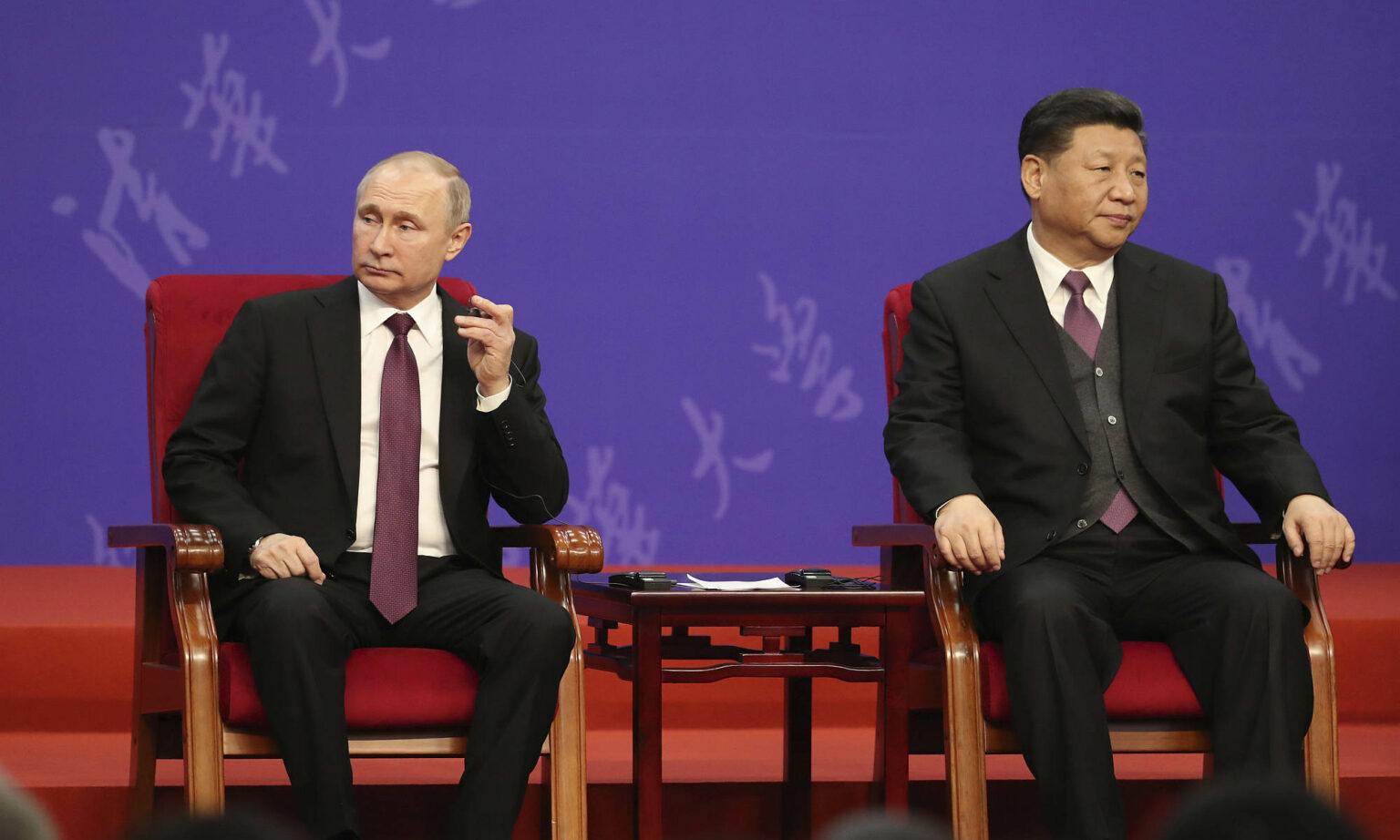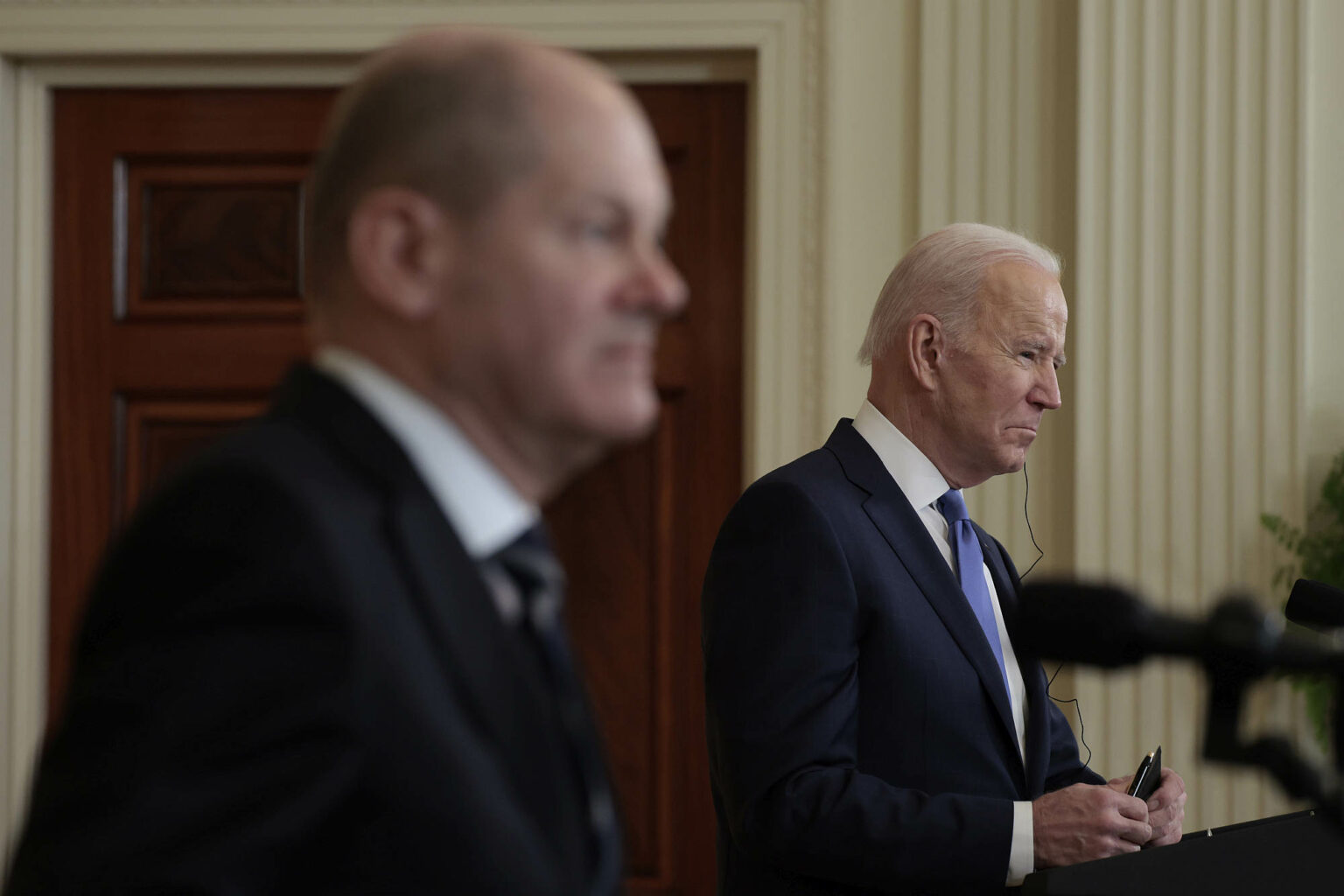
Long-read
The end of the age of globalisation
How Russia's invasion of Ukraine could hasten the demise of the US-led economic order.
The economic consequences of Russia’s bloody and despicable assault on Ukraine are very much a secondary consideration to the immediate human and geopolitical implications. And since the various national responses to the conflict are still so fluid, it is far too early to be able to identify the war’s precise longer-term economic effects. Nevertheless, it is possible to tentatively suggest what could unfold on the international economic front.
At least in the short term, the direct and indirect disruptions to economic relations arising from the invasion will almost certainly damage prospects for economic growth and boost inflation far beyond the combatant countries. In particular, the relative toughening of sanctions will generate economic difficulties in many areas beyond Russia itself.
While the war is of huge importance geopolitically, it would, however, be misleading to overstate its economic effects, given all the other enormous economic challenges already in place. For example, the Financial Times claims that the war has ‘shattered hopes of a strong global economic recovery from coronavirus’. But this implies that a strong recovery was already on the cards. There has long been a prevalent complacency that ignores the fundamental atrophy afflicting most advanced industrialised countries. War or no war, the high debt and weak investment common to many Western economies are likely to mean a continuation of the sluggish growth of the past decade.
More broadly, the repercussions of the war are likely to reinforce existing economic trends towards autarky and regionalisation, rather than taking us in entirely new directions. Analysts at Goldman Sachs, for instance, suggest that the war is going to damage globalisation and reinforce de-globalisation forces. But this conventional counterposition of ‘de-globalisation’ to ‘globalisation’ does not help clarify what is happening. In practice, market capitalism has always operated both nationally and internationally at the same time. As a result, economic internationalisation (‘globalisation’) can easily co-exist with a heightened focus on national economic considerations (‘de-globalisation’).
Nevertheless, economies will in future become more nationally focused. There will be further calls for the reining in of global supply chains and for the development of a ‘made at home’ supplier model, in the name of greater resilience.
The rise of autarky
To appreciate the distinct impact of the Russia-Ukraine conflict, it’s important to recognise that autarkic trends long predate the war, and indeed even the pandemic. Analysis published by the World Trade Organisation shows that at the time of the 2008 financial crisis, fewer than one per cent of merchandise imports were impeded by mechanisms introduced by governments of the world’s top 20 economies. In 2019, on the eve of the pandemic, this figure had expanded more than tenfold to hit over 10 per cent of trade.
Many of these pre-pandemic protectionist measures had been introduced by globalist-orientated governments, not by self-styled ‘isolationist’ politicians, like Donald Trump. Part of the reason this record of protectionist activity went under the radar until recently was because, compared to early 1930s-style border tariffs and quotas, modern-day protectionism is usually more sophisticated, characterised by ‘non-tariff’ or ‘behind-the-border’ barriers to trade.
Nevertheless, the driver of today’s hidden protectionism is similar to that driving 1930s protectionist tariffs – namely, governments seeking to support crisis-ridden national economies. In this respect, it was the Western financial crisis of 2007-2008, rather than the pandemic or increasing geopolitical tensions, that served to amplify and expand protectionist practices. The crash revealed the limits of debt and financialisation as a way of sustaining an aura of ongoing prosperity. Though we still very much live with debt and financialisation, their relative exhaustion has led to increased dependence on other forms of state intervention.
In the absence of a normal post-recession recovery in most Western countries, governments adopted an increasingly interventionist role in order to mitigate their economic difficulties. Over the past decade, state actions have intensified to support troubled national economies. These are not restricted to ultra-easy monetary policies like low interest rates and quantitative easing – they also involve a variety of government-support mechanisms, including regulatory actions and procurement contracts, as well as direct subsidies and bailouts.
Alongside domestic problems, including debt dependence, financial bubbles and the perpetuation of zombie businesses, these types of state interventions tend to aggravate inter-country tensions, too. This is because these protective state policies are usually to the detriment of other nations, even if such external harm is not their objective.
The response to the pandemic merely normalised and expanded more overt nation-first, protectionist measures. As a result, it is feasible that we won’t see the same emphasis on the more hidden protectionism of pre-pandemic times. For example, recent calls for greater national self-sufficiency and ‘strategic autonomy’ in response to global supply-chain risks and disruptions have morphed easily into protectionist proposals. The Goldman Sachs analysis suggests that the Ukraine crisis will reinforce calls for local production, despite it being more costly, in pursuit of strengthening ‘security of supply’.
The erosion of international and institutional cooperation
Just as these autarkic economic and policy trends are well established, so is the erosion of international economic cooperation. The old globalist vision of harmonious interdependence was already at odds with how the world was actually operating well before the war in Ukraine.
Throughout the 2000s and 2010s, national state measures had already started to prevail over the spirit and framework of international cooperation that characterised the 1980s and 1990s. The erosion of economic collaboration was not necessarily planned. Rather, protectionism against foreign competition accompanies most national state intervention, and inevitably tends to undermine purposeful cooperation.

The old norms of international cooperation have faded, driven less by calculated animosity than by more pressing home-grown objectives. But whatever the cause, the result is that national differences fester. The erosion of cross-border cooperation has undermined Western nations’ already ill-prepared and unworldly diplomatic machinery, as exemplified in the run-up to the Russian invasion.
Before the Russian-Ukrainian war, and before the pandemic, national rivalries and Western disunity were far more pronounced than many globalist commentators assumed. International cooperation was still regarded as a ‘good’ thing, but increasingly and especially since the financial crisis, any actual positive results have become hard to identify. Since 2008, policy actions with international repercussions have almost universally been taken in line with national considerations, whether emanating from Washington, Beijing or beyond. Genuinely collaborative global initiatives have been sparse or, where they have been formally launched, they have had little meaningful consequence.
For instance, one of the first formal assessments of the international response to the pandemic concluded that the global measures taken to quell it had been mostly ineffective. The ‘global preparedness monitoring board’, co-convened by the World Health Organisation and the World Bank, determined that the inadequacies of the response started ‘at the top’. It pointed out that although the UN General Assembly, the UN Security Council, the World Health Assembly, the G7 leaders and the G20 leaders all met to discuss the pandemic, they had ‘little to show for it other than declarations of intent, and [there was] limited evidence they had a significant impact on the trajectory of the pandemic’. It blamed the dysfunctionality of globalist institutions on ‘geopolitical divisions’, and on the proliferation of nation-first actions, especially those taken by the wealthier Western countries.
For some time now, many of the big international bodies have been little more than talking shops. But what the pandemic did was to bring their loss of effectiveness and authority into the open. It is telling, for instance, that during the pandemic the World Health Organisation did not just fail to lead a coherent global response to Covid-19 – it also became an arena for dispute between its members. It has been variously accused of inaction, or of having a pro-China bias, or, according to the Chinese Communist Party, of intruding into China’s domestic affairs.
Previous norms for handling international relations had therefore been eroded well before the war in Ukraine. The impact of the conflict, on top of that of the pandemic, is likely to further aggravate instabilities within the postwar order.
In the short term, the war itself may be providing some common purpose to the West and covering up previous divisions. But it is too early to assess how durable this new-found Western unity is, and how it might evolve. What is more clear is that whatever happens with Russia, the tension between the two biggest global powers, the US and China, will remain the biggest influence on the changing world order.
Enhanced regionalisation
The outcome of the war is likely to speed up the regionalisation of the world into American and Chinese-led blocs. Where Europe fits in, either as an independent region or as a junior adjunct to America, remains to be determined. The European Union is still grappling with the dilemma of how much ‘strategic autonomy’ it can develop, and how much it will remain dependent on the US’s declining but still formidable economic, technological and military powers. This uncertainty about the role of European nations within the changing world order is itself symptomatic of a potentially fluid and shifting global set of international arrangements.
While today’s military confrontation appears to revive US leadership of the old West, because of its dominant military capabilities, in the longer term it is likely to speed up the shift to a post-American world, with China steadily accruing its own powers and global authority. Indeed, at this stage of the Ukrainian crisis it looks probable that Beijing will be one of the few winners. By stating its support of Ukrainian state sovereignty, while refusing to join the West’s provocative demonisation of Putin and Russia in general, the Chinese leadership has been ploughing its own furrow. This approach is more likely to win allies and influence than America’s approach, given Washington’s dangerous antics before the war: blustering against Putin, while declaring it had no intention to fight.
In economic and financial terms, too, the world economy’s rebalancing towards China and east Asia could gain further momentum from the war. US efforts to economically ‘decouple’ China from the West have already been backfiring by reinforcing Beijing’s focus on building up its own technological, financial and productive capabilities, autonomously and through Asian regionalisation. It could well turn out that today’s Western actions to ‘decouple’ Russia also end up enhancing China’s position in the world.
Years of ill-considered Western power games and posturing against Moscow and Beijing have been bringing China and Russia closer together, despite their lack of ideological affinity. The initial modest Western sanctions imposed on Russia after the Crimean annexation in 2014, and now the much harsher sanctions, have been forcing Russia to turn ever more to China as an alternative market, financier and trading partner. While this might provide some sort of financial lifeline to Moscow in the short term, in the longer run it’s likely to strengthen Chinese regional and Eurasian influence at the expense of the West. Any medium-term diversion of Russian fossil-fuel flows from Europe to China would be an added bonus for Beijing.
It is also worth noting that today’s crisis could precipitate the end of the dollar as the world currency. Ray Dalio, who runs the largest hedge fund in the world, explained in his recent widely praised book, Principles for Dealing with the Changing World Order, that functioning as the global reserve currency is one of the greatest powers a dominant country can have. It gives enormous borrowing and buying capacity to the hegemon, and ultimately underpins its geopolitical power.
The history of the reserve-currency role of the US dollar, as with Britain’s pound before, also illustrates that this is one of the assets that a declining hegemon is slowest to lose. This is because so many countries and businesses are using the dollar for cross-border activities it becomes enmeshed within international economic operations, and hard to disentangle. Hence, for all America’s other troubles, not least becoming the world’s biggest debtor nation, the dollar in 2019 still made up just over half of global central-bank reserves by currency. The Euro, in second place, made up only 20 per cent, and the Chinese Renminbi just two per cent.

However, this hegemonic asset can turn into a source of instability. Precisely because the dollar plays a hugely disproportionate role as world money relative to the size of the US economy, it is likely that other countries might see so many dollar holdings as a liability and diversify away into other currencies and hard assets like gold.
Ironically, measures taken by the US government to weaponise the dollar to try to exert its authority could backfire. Sanctioning other countries from using the dollar for international payments, including Iran and now Russia, sends a warning to other countries. Who might be next, and whose dollar assets might be frozen by Washington decree?
The danger for the US is that the more it weaponises the dollar and uses it to impose financial sanctions on others and to control financial and payment flows, the more that other countries, not just adversaries, become less keen to retain it. The combined risk of arbitrary asset freezes and currency devaluation could discourage holding dollars, thereby catalysing the dollar’s decline as the global reserve currency.
Meanwhile countries targeted directly by the US, including Russia and China, have already been encouraged to devise alternative national and regional payments systems. This is hastening the movement to regionalisation. Note, too, the efforts of the Chinese state to create a credible central-bank digital currency ahead of others. This would both make China less susceptible to American financial sanctions and also offer an alternative for other countries who want to wean themselves off dollar dependency. The West’s recent measures to clamp down on Russia’s use of its central-bank reserves, while potentially very disruptive to Moscow, will eventually motivate other nations to become more serious about moving towards a post-dollar financial world. If and when that happens, it would represent a significant step towards a post-American world order.
Conclusion
It is likely that today’s bloody war will reinforce the longer-term shifts in international economic relations that have been underway for more than a decade, and were already amplified by the responses to the Covid-19 pandemic. Post-pandemic, the old crutches of American world leadership and of the globalist institutions were already looking increasingly worn out. However the Russian invasion unfolds, this erosion of the American world order is likely to continue. An even more dangerous geopolitical interregnum is therefore now on the cards. This heralds what could be a protracted period when the world is neither fully at war nor fully at peace, and where, in place of genuine cooperation and collaboration, conflict and confrontation become the norm.
Phil Mullan’s Beyond Confrontation: Globalists, Nationalists and Their Discontents is published by Emerald Publishing. Order it from Emerald or Amazon (UK).
No paywall. No subscriptions.
spiked is free for all.
Donate today to keep us fighting.
Donate onlinePictures by: Getty Images.
To enquire about republishing spiked’s content, a right to reply or to request a correction, please contact the managing editor, Viv Regan.







Comments
Want to join the conversation?
Only spiked supporters and patrons, who donate regularly to us, can comment on our articles.